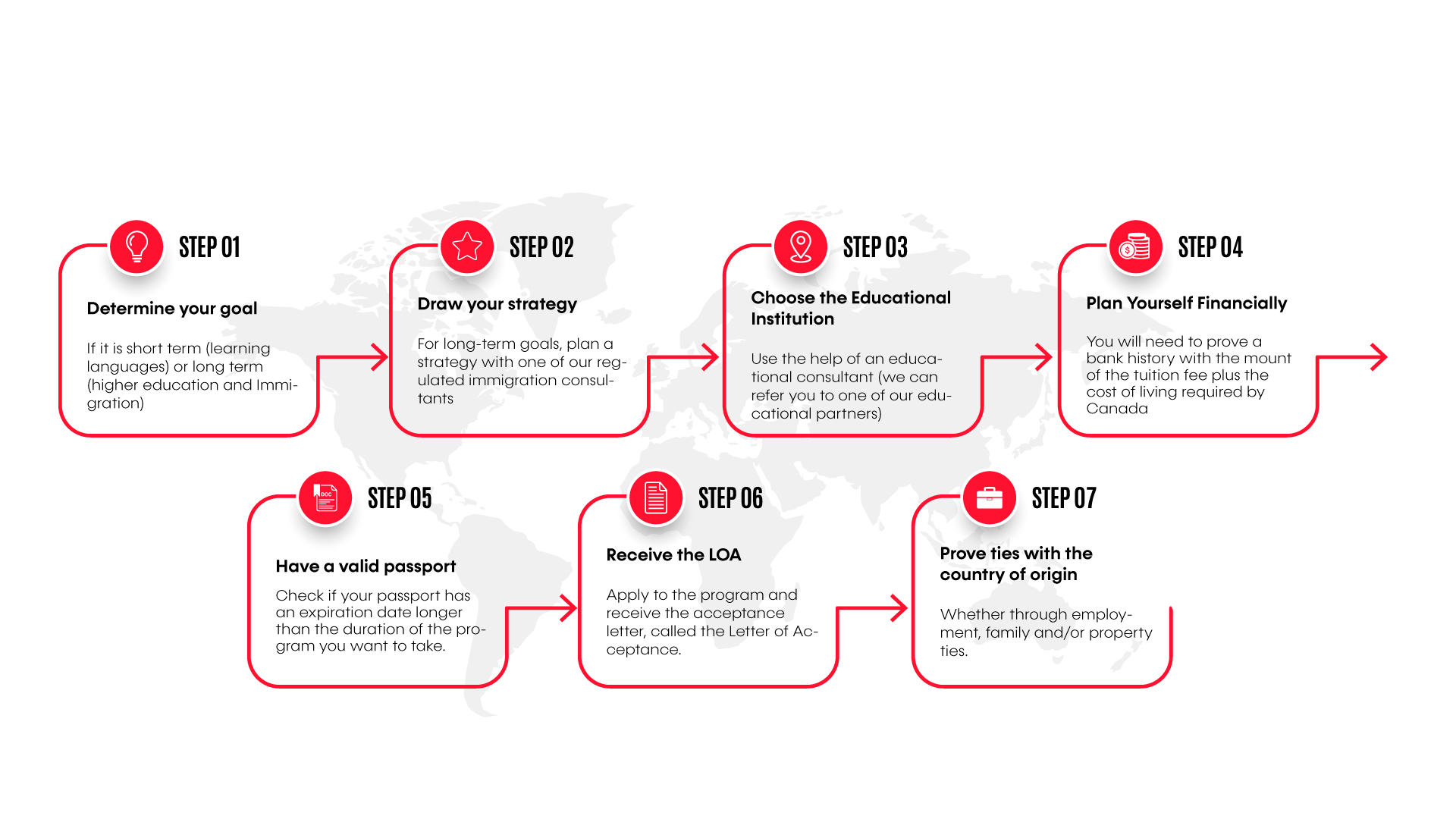STUDY
WANT TO STUDY IN CANADA?
TFA MAY HELP YOU
Did you know that approximately 60% of the international students who come to Canada are willing to become permanent residents after their studies? This is because the country offers excellent advantages, such as the possibility of working after graduation, by applying for the Post-Graduation Work Permit, besides certain provincial immigration programs that also benefit international students.
Check below the options for visa/permit
should you wish to come to Canada to study.
Count on the assistance of the TFA team to take care of your process, conducting your entire application correctly and safely.
STUDY VISA (SX-1)
STUDY VISA (S-1)
STUDY AND WORK VISA/PERMIT (SW-1)
WORK AFTER YOU GRADUATE
Get a free educational consultation.

Get a free initial consultation with our educational partner. Ask all your questions about exchange programs and discover the best options for schools and courses for you. Leave your contact below to receive more information
TAKE THE FIRST STEP
TOWARDS CANADA
Fill in your details to receive more information regarding our immigration assistance service fees.
TAKE THE FIRST STEP
TOWARDS CANADA
Fill in your details to receive more information regarding our immigration assistance service fees.
Sharing our clients’ experiences


Frequently asked questions about study visa/permit in canada
Frequently asked questions about study visa/permit in canada
Yes, it is very important to submit a letter of intent from the applicant who will be studying. The letter must be of a personal nature and make it as clear as possible why the applicant believes that the program will make a difference in his career.
In Study Permit applications, Immigration recommends submitting extracts from the last 4 months. This would be the rule but depending on the application and the profile of each applicant, fewer statements could be presented or only balances, this will be verified on a case-by-case basis.
Anyone who has student status within Canada cannot stay over 150 calendar days without actually studying. This period runs from the date of issuance of the permit.
If you intend to study for more than 6 months in Canada, you will need to undergo a medical examination. This goes for all family members who will accompany you.
If you are eligible to work off campus, you can work up to 20 hours a week when you actually start attending classes. During scheduled program breaks, such as summer or winter break and spring break, you can work up to 40 hours a week. I emphasize that you can only start working in Canada when you start your study program.
No. Although you already have the visa as a way to prove that your study request has been approved, what gives you the status of a student within Canada is the Study Permit, so only when you have the permit issued in your hands is it who will be able to start the studies.
A person who has student status in Canada (possessing a Study Permit) and is taking a post-secondary program is normally entitled to work 20 hours a week, regardless of whether the course has a mandatory internship or not. What allows you to work part-time is the student status, the Study Permit itself.



